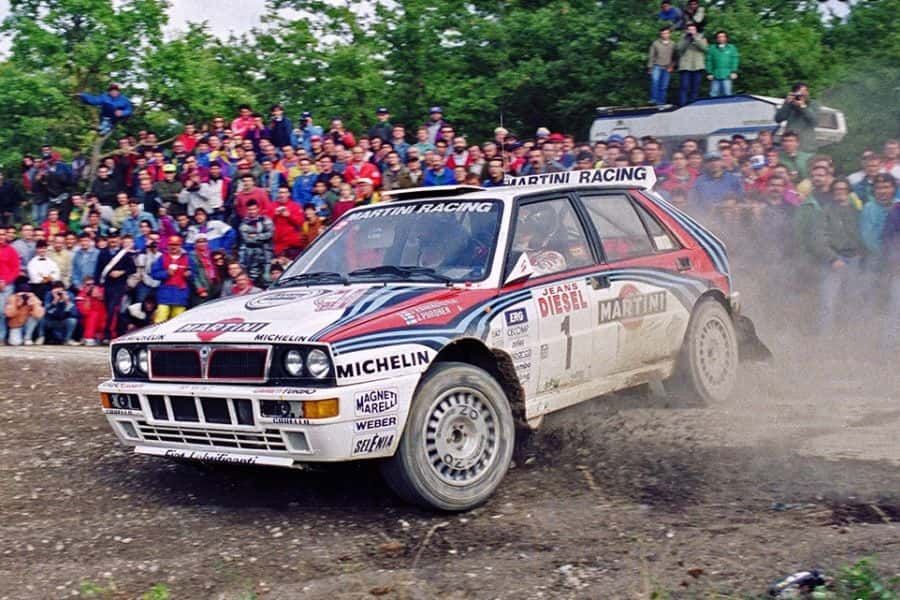Martini Racing - more than half a century of constant success
Back in time, when tobacco and alcohol brands were extensively involved in motorsport without limitations, some of those brands and their teams earned an iconic status in the racing history, such were Rothmans Porsche, Marlboro Ferrari or Subaru 555. One of the motorsport brands which is recognizable all around the world more than its original product is Martini Racing, named after Martini vermouth produced by an Italian distillery Martini &Rossi.
Company entered races in 1962, Martini Racing since 1968
Martini &Rossi entered motorsport for the first time in 1962 while the Martini Racing name appeared in 1968. Since then, many teams in various motorsport disciplines competed under the Martini Racing name or just with Martini’s sponsorship, including Lancia in the World Rally Championship, Porsche and Lancia in the World Sportscar Championship, Tecno, Brabham or Lotus in Formula One or Alfa Romeo in touring car races. Today, Martini Racing is the naming sponsor of the Williams Formula One team.
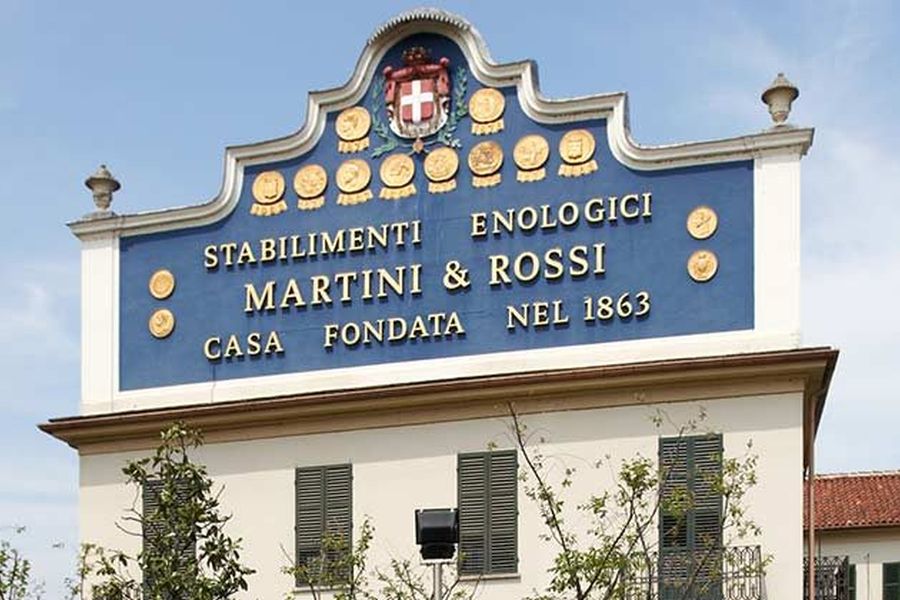
Martini &Rossi company was founded in 1863
Seven WRC titles and three Le Mans wins
In more than fifty years of Martini Racing’s history, the most glorious years were the 1980s and 1990s, when Martini Racing was a synonym for Lancia factory team in the World Rally Championship, winning seven Manufacturers’ titles between 1983 and 1992. During the 1970s, Martini Racing won three times at 24 hours of Le Mans, running Porsche cars.
Racing debut with Alfa at Daytona International Speedway
Although based in Turin, Italy, Martini &Rossi had its first appearance in the world of racing in the United States. It was at 3 hours of Daytona in February 1962, the first ever endurance race at Daytona International Speedway which later became the 24-hour race. Martini &Rossi Racing Team’s name appeared on two Alfa Romeo Giulietta SZ cars, driven by Charlie Kolb and Paul Richards. They finished first and second in GT1.3 class.
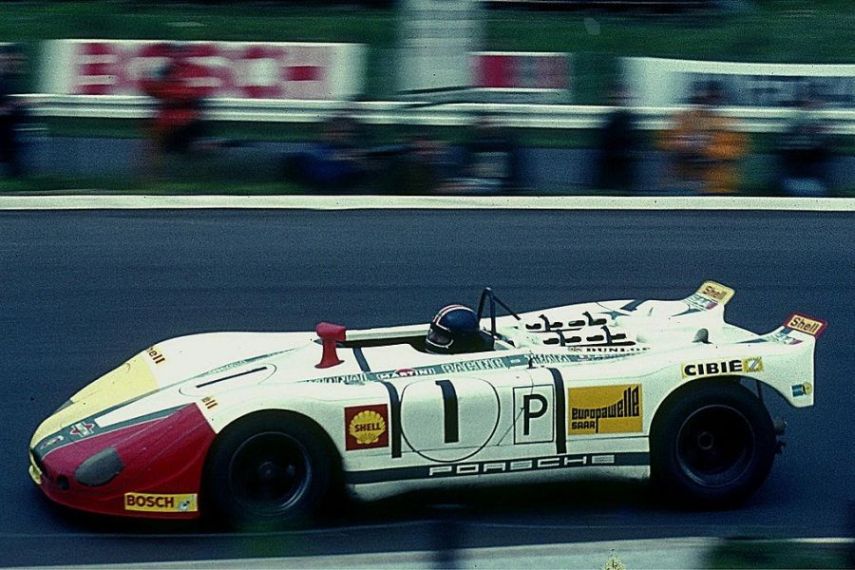
Gerard Larrouse’s Porsche 908 sponsored by Martini
Martini Racing and Porsche together since 1968
As a brand, Martini Racing was born in 1968, when Paul Goppert, head of publicity and public relations for Martini Germany, made a deal with his friend Hans-Dieter Dechent to sponsor him while driving Porsche 910 for Scuderia Lufthansa. The first ever race with Martini Racing stickers was the Eberbach hill climb on April 28, 1968. After that, Dechent participated in few Grand Prix races, including the 1000 km of Nürburgring, which was a part of the International Championship for Makes.
A connection with Porsche continued in 1969 when Martini Racing backed up Porsche factory team in several sports car races. After that, Martini Racing was formed as one of the teams which were running Porsche cars. During the 1970s, a combination of Porsche and Martini Racing became famous, resulting in three overall wins at 24 hours of Le Mans.
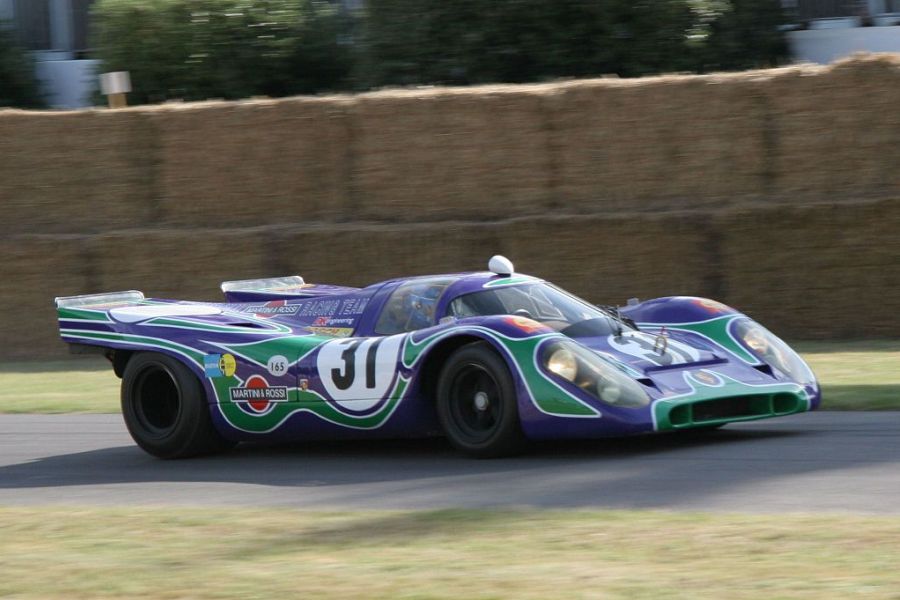
Unusual livery of Martini Racing’s Porsche Hippie car
1970 Le Mans debut with two podiums
Martini Racing debuted at Le Mans in 1970, capturing two places on the podium, finishing second with #3 Porsche 917L (Gerard Larrouse and Willi Kauhsen) and third with #27 Porsche 908 (Rudi Lins and Helmut Marko). The #3 car was remembered by a spectacular livery with whirls and swoops of light green on a dark blue background. The car gained the nickname Hippie Car or the Psychedelic Porsche.
Maiden Le Mans win and distance record in 1971
The first victory at Le Mans came a year later, in June 1971. Helmut Marko and Gijs van Lennep won the race in the #22 Martini Racing Porsche 917K, completing 397 laps and setting a new distance record of 5,335 kilometers. That record stayed unbroken until 2010. Martini Racing had two more cars in that race, the #23 Pink Pig and the #21. They finished 32nd and 33rd respectively.
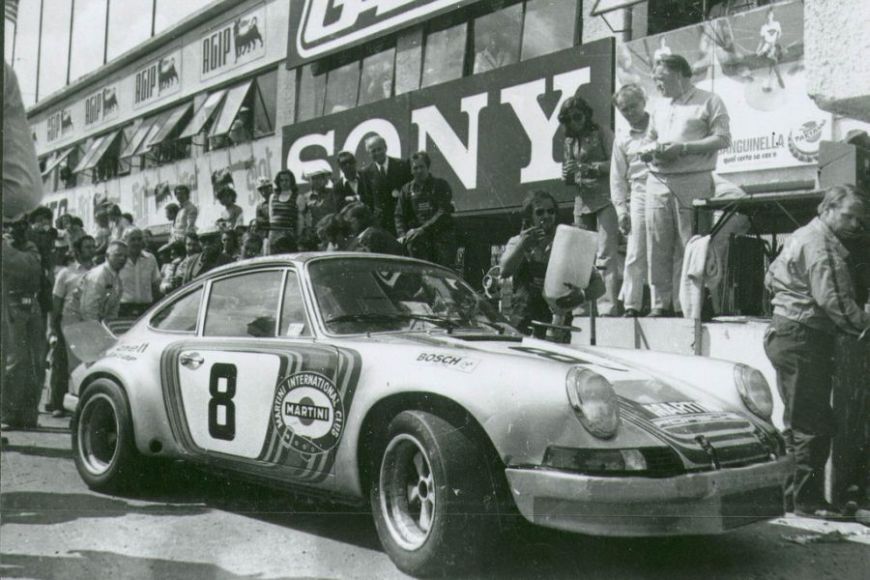
Victorious car at 1973 Targa Florio
Victory at 1973 Targa Florio
Following Porsche’s withdrawal from the championship in 1972, Martini Racing was also out of competition that year, returning in 1973, both with prototypes and GT cars. The team claimed three wins in GT class of the World Sportscar Championship and one overall victory at Targa Florio with #8 Porsche 911 Carrera RSR, driven by Gijs van Lennep and Herbert Muller. Leo Kinnunen and Claude Haldi finished in the third place with #9 car.
At 1973 Le Mans race, Muller and van Lennep finished fourth in Martini Racing’s #46 Porsche 911 Carrera RSR. In 1974, Muller and van Lennep progressed to second place at Le Mans, six laps behind the winners in Matra-Simca MS670C.
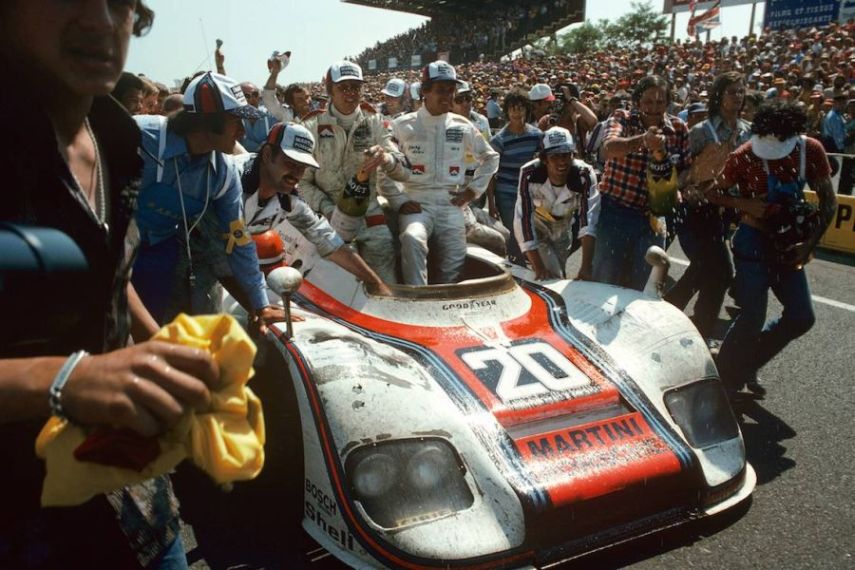
1976 Le Mans winners
Two more wins at Le Mans in 1976 and 1977
Martini Racing reached its second win at Le Mans in 1976, with Jacky Ickx and Gijs van Lennep in the #20 Porsche 936. Rolf Stommelen and Manfred Schurti were fourth overall and Group 5 winners in the #40 Porsche 935. Jacky Ickx defended his win in 1977, joined by Hurley Haywood and Jurgen Barth in the #4 Porsche 936.
One-off WRC entry with Porsche in 1978
In 1978, Martini had a one-off entry with Porsche in the World Rally Championship, sponsoring two cars at 1978 Safari Rally. Kenyan driver Vic Preston finished in the second place with #14 Porsche 911 SC, two places ahead of teammate Bjorn Waldegard in the #5 Porsche.

Martini Racing’s Porsche 911 Carrera RSR
Racing with Porsche until 1980
Martini Racing cooperated with Porsche until 1980, with few more notable results in endurance races, including a double podium at 1978 Le Mans. Jacky Ickx, Jurgen Barth and Bob Wollek were second in the #6 Porsche 936, one place ahead of Hurley Haywood, Peter Gregg and Reinhold Joest in the #7 car.
In 1980, Martini Racing sponsored Joest Racing’s #9 Porsche 908, which finished in the second place, driven by Jacky Ickx and Reinhold Joest. It was the last joint appearance at Le Mans for Martini Racing and Porsche.

Martini Racing’s Lancia LC2
Endurance racing with Lancia from 1981 to 1985
From 1981, Martini Racing started to support Lancia in the endurance racing. The team was running Group 5 Lancia Beta Monte Carlo. At Le Mans, the #65 Lancia finished 8th overall and second in the Group 5 classification. Drivers were Michele Alboretto, Eddie Cheever and Carlo Facetti. Later in the season, Michele Alboreto and Riccardo Patrese was the overall winner in the Watkins Glen 6 Hours.
In the following years, Martini Racing was running Group 6 Lancia LC1 and Group C Lancia LC2. The team gained many wins in championship races all over the world but had no luck at Le Mans. The best result was the 6th place in 1985 for Bob Wollek, Alessandro Nannini and Lucio Cesario in the #4 Lancia LC2. Henri Pescarolo and Mauro Baldi were 7th in the #5 car. A year earlier, Wollek was the fastest qualifier and Nannini set the fastest lap in the race, but the #4 Lancia LC2 finished in the 8th place.
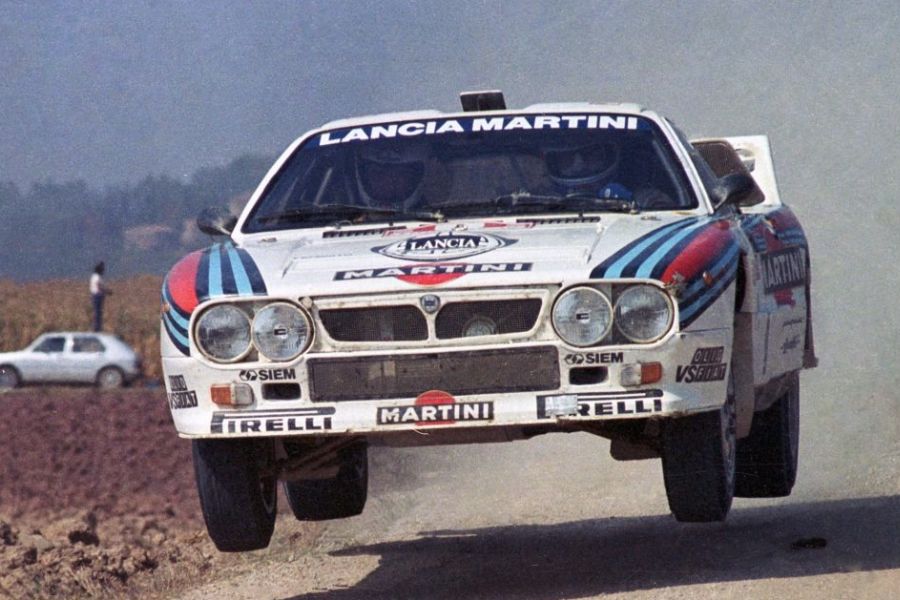
Martini Racing’s Lancia 037 Rally
WRC debut in 1982 with Lancia Rally 037
While supporting Lancia in endurance racing, Martini was also involved into Lancia’s rally programme, starting with 1982 WRC season. It was an era of the first Group B rally cars. Martini Lancia entered a category with a brand new Lancia Rally 037, debuting in the fifth round of the championship (Tour de Corse) with Markku Alen and Attilio Bettega as drivers. The first 4WD car Audi Quattro brought manufacturers’ title to Audi
First WRC manufacturers’ title in 1983
In 1983, Markku Alen remained the leading driver of Martini Racing, with Walter Rohrl in another car. The maiden WRC victory came at the season-opening Rallye Monte-Carlo, with Rohrl as the winner. He scored two more wins later in the season, Alen added two wins and the team captured its first manufacturers’ title. In the drivers’ standings, Rohrl was second, Alen was third.
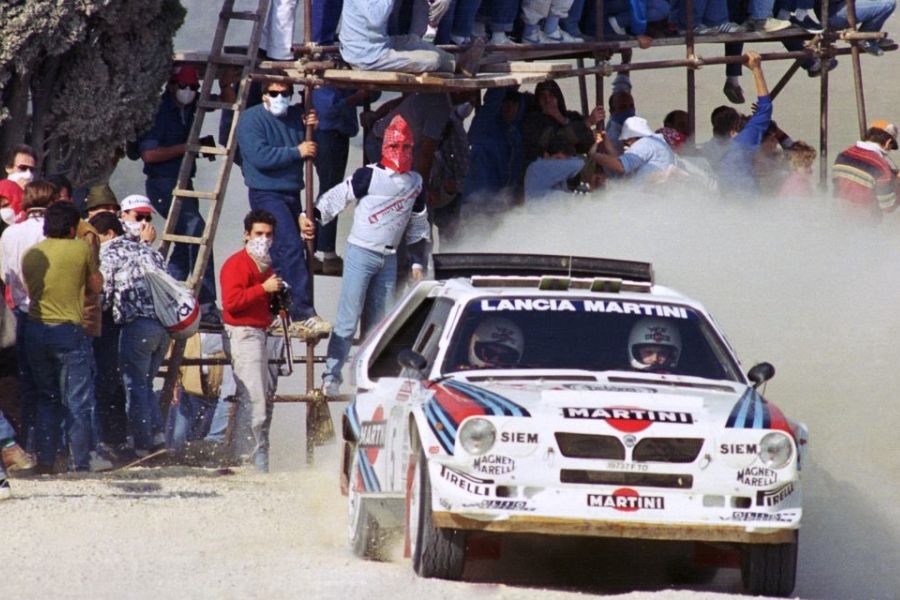
Lancia Delta S4 – Group B rally monster
Glorious and dangerous years of Group B rally cars
In 1984, Markku Alen was driving for the team again, with Attilio Bettega, Henri Toivonen, Jean-Claude Andruet and Vic Preston as other drivers. With just one victory, Markku Alen was again third in the points. Among manufacturers, Lancia lost a title to Audi.
The Lancia Delta S4 came in 1985. Prior to the debut of a new car, Lancia 037 Rally became fatal for Attilio Bettega, who lost his life at Tour de Corse. A year later, Henri Toivonen and his navigator were killed at the same event, driving the Delta S4. In two final years of Group B cars, Martini Racing scored four wins and more than ten podiums, leaving its mark in the most glorious and the most dangerous years of the WRC.
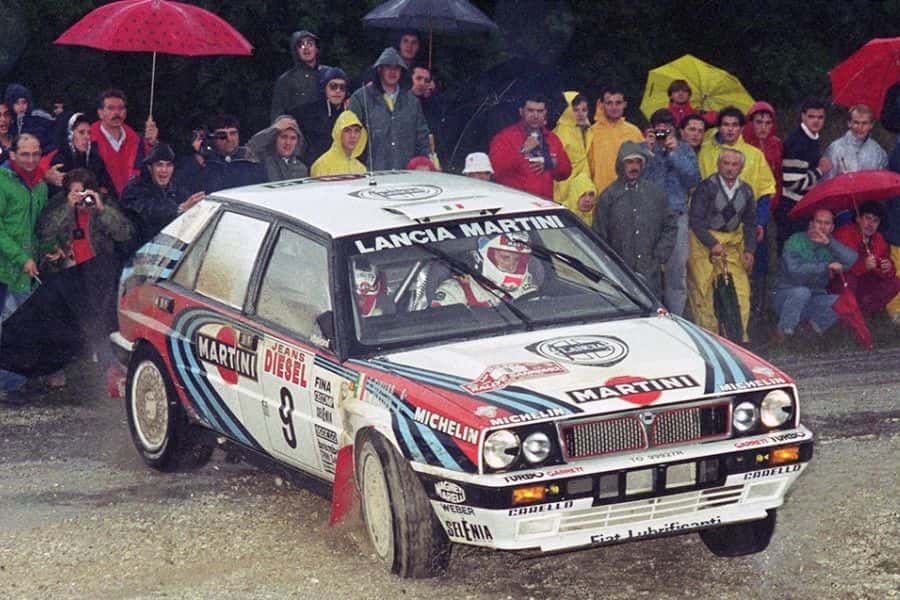
Unforgettable Martini Racing Lancia Delta HF Integrale
Story of Lancia Delta began in 1987
Following a ban of Group B rally cars, Martini Racing was ready to rule in the Group A with Lancia Delta HF 4WD. Juha Kankkunen, Miki Biasion and Markku Alen are the drivers for most of the season, scoring eight wins throughout a season and taking first three places in the drivers’ standings. The champion was Kankkunen. Of course, Manufacturers’ trophy went to Lancia.
In 1988, with an updated Lancia Delta HF Integrale, Martini Racing took its second consecutive WRC title. The 1988 drivers’ champion was Miki Biasion, who repeated his triumph in 1989. Other Lancia’s rally winners in that period were Bruno Saby, Markku Alen, Jorge Recalde, Didier Auriol and Mikael Ericsson.

Some of the world’s greatest rally drivers were driving for Martini Racing
Six manufacturers titles in a row
In 1990, Toyota’s Carlos Sainz interrupted Martini Racing’s domination, taking the drivers’ title. Among manufacturers, Lancia had no proper rivals and captured the fourth title in a row. The Italian team repeated that feat two more times, in 1991 and 1992. In 1991, Lancia’s driver Juha Kankkunen was the champion again. In 1992, Toyota’s Carlos Sainz won the championship.
One of the greatest stories in a history of rallying came to an end following the 1992 season, when Martini Racing left the World Rally Championship and never returned in it as a team.
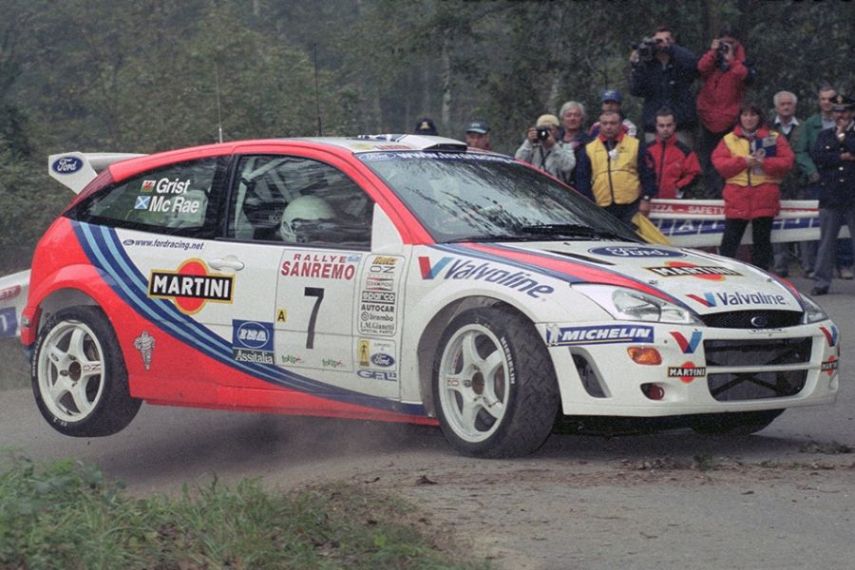
Martini was sponsoring Ford WRT from 1999 to 2002
Martini sponsored Ford World Rally Team from 1999 to 2002
Martini Racing returned to the WRC as a sponsor only in 1999, supporting Ford World Rally Team, operated by British M-Sport. Martini stayed with Ford for four seasons, until the end of 2002.
Colin McRae was the driver in the Martini-liveried Ford Focus RS WRC for all four seasons, with Simon Jean-Joseph, Thomas Radstrom, Petter Solberg, Carlos Sainz and Markko Martin as teammates eligible to score points. They scored eleven wins in four seasons, without taking any championship title.
Touring car years with Alfa Romeo
During the 1990s, after leaving WRC, Martini Racing was involved in touring car racing, sponsoring Alfa Romeo in the Italian Superturismo Championship. In 1995, Martini-Alfa connection was transferred into the DTM but without notable results, as Alfa Romeo 155 V6 Ti wasn’t competitive against German rivals from Mercedes and Opel.
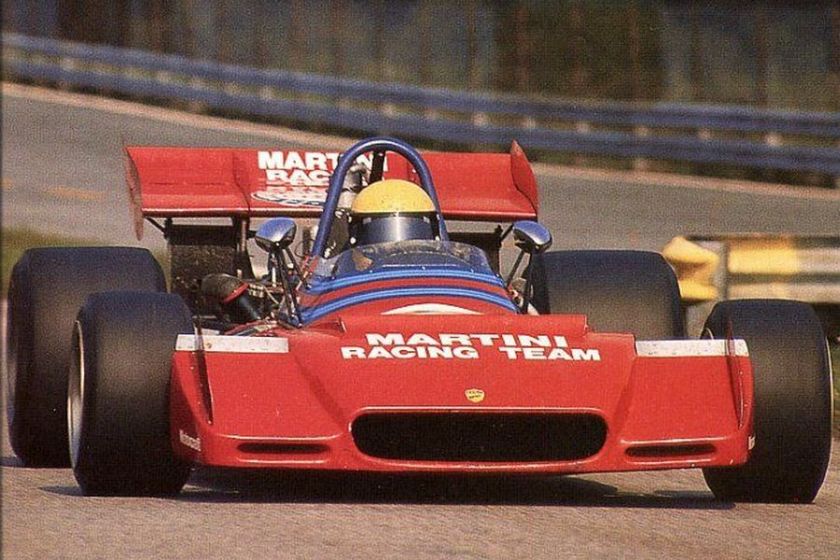
Martini Racing debuted in Formula 1 with Tecno team in 1972
Martini Racing debuted in Formula 1 in 1972
The special chapter of Martini Racing’s history is Formula One’s involvement. Martini Racing entered the world’s premier single-seater competition in 1972, sponsoring the Italian team Tecno, with Nanni Galli and Derek Bell as drivers.
In 1973, a driver was Chris Amon. After two disappointing seasons, scoring one single point, Martini left the championship.

In 1975, Carlos Pace scored the first F1 win for Martini Racing with Brabham BT44B
Maiden F1 win at 1975 Brazilian Grand Prix
After skipping the 1974 F1 season, Martini Racing returned in 1975 as a naming sponsor of Bernie Ecclestone’s Brabham team. Carlos Reutemann and Carlos Pace were the drivers, scoring one victory each. Carlos Pace scored a maiden F1 win for Martini Racing at his home event, the Brazilian Grand Prix. Reutemann won the German Grand Prix. The team finished second in the championship, behind Ferrari.
Martini stayed with Brabham for two more seasons. The results with Alfa Romeo-powered cars were disappointing in 1976. In 1977, John Watson, Carlos Pace and Hans-Joachim Stuck collected few podiums.
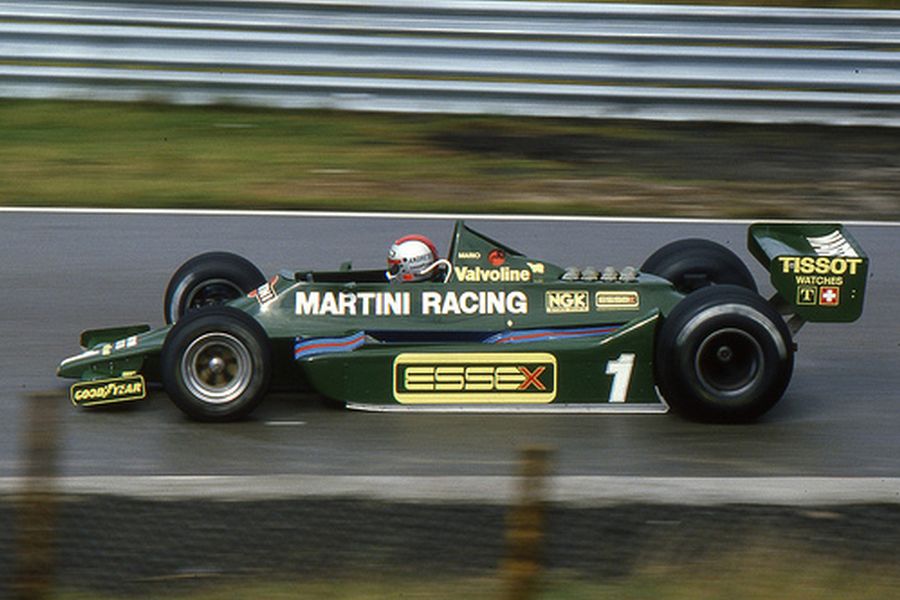
In 1979, Mario Andretti was driving the #1 Lotus for Martini Racing
Martini Racing and Lotus together in 1979
For the 1979 Formula One season, Martini Racing moved its sponsorship to Team Lotus, which was the 1978 championship-winning team both in drivers’ and teams’ championship. Either Lotus or Mario Andretti didn’t manage to defend titles. The second driver was Carlos Reutemann. After missing to score a single win in 1979, Martini Racing withdrew from Formula One.
Full F1 return with Williams
Martini Racing returned to Formula One after more than thirty years, in a partnership with Williams Formula One team in 2014. The team changed its name to Williams Martini Racing.
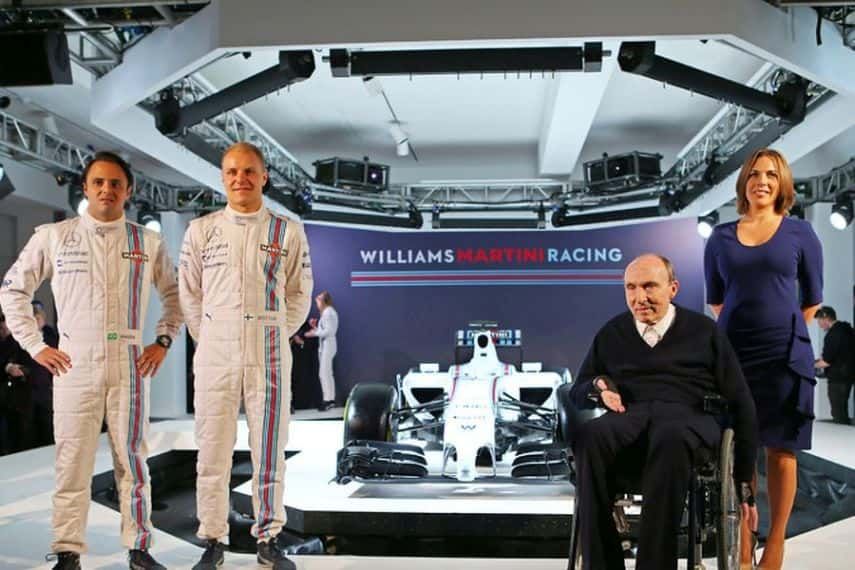
Launch of the Williams Martini Racing team in 2014
Photos: ewrc-results.com, Getty Images, motorsportretro.com,


